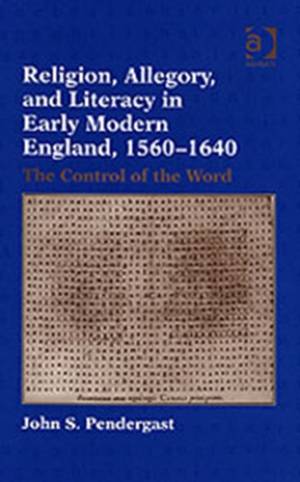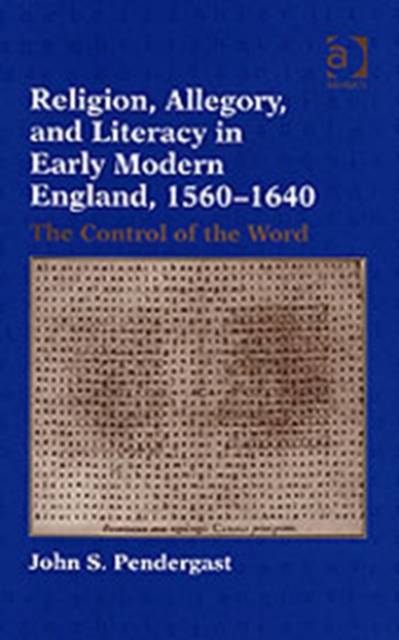
- Afhalen na 1 uur in een winkel met voorraad
- Gratis thuislevering in België vanaf € 30
- Ruim aanbod met 7 miljoen producten
- Afhalen na 1 uur in een winkel met voorraad
- Gratis thuislevering in België vanaf € 30
- Ruim aanbod met 7 miljoen producten
Zoeken
Religion, Allegory, and Literacy in Early Modern England, 1560-1640
The Control of the Word
John S Pendergast
Hardcover | Engels
€ 174,95
+ 349 punten
Omschrijving
Using as a primary focus the manner in which Protestant and Catholic paradigms of the Word affect the understanding of how meaning manifests itself in material language, this book develops a history of literacy between the middle of the sixteenth century and the middle of the seventeenth century. The author emphasizes how literacy is defined according to changing concepts of philological manifestation and embodiment, and how various social and political factors influence these concepts. The study looks at literary texts such as The Fairie Queene, early Shakespearean comedies, sermons and poems by John Donne, Latin textbooks and religious primers, and educational and religious treatises which illustrate how language could be used to perform spiritual functions. The cross section of texts serves to illustrate the pervasive applicability of the author's theories to early modern literature and culture, and their relationship to literature. The texts also illuminate two matrices that the author argues are central to the study of sixteenth- and seventeenth-century literature: Protestant reading and exegetical strategies in contrast with Catholic strategies, and secular versus spiritual literacies.
Specificaties
Betrokkenen
- Auteur(s):
- Uitgeverij:
Inhoud
- Aantal bladzijden:
- 198
- Taal:
- Engels
Eigenschappen
- Productcode (EAN):
- 9780754651475
- Verschijningsdatum:
- 19/06/2006
- Uitvoering:
- Hardcover
- Formaat:
- Genaaid
- Afmetingen:
- 159 mm x 235 mm
- Gewicht:
- 453 g

Alleen bij Standaard Boekhandel
+ 349 punten op je klantenkaart van Standaard Boekhandel
Beoordelingen
We publiceren alleen reviews die voldoen aan de voorwaarden voor reviews. Bekijk onze voorwaarden voor reviews.











